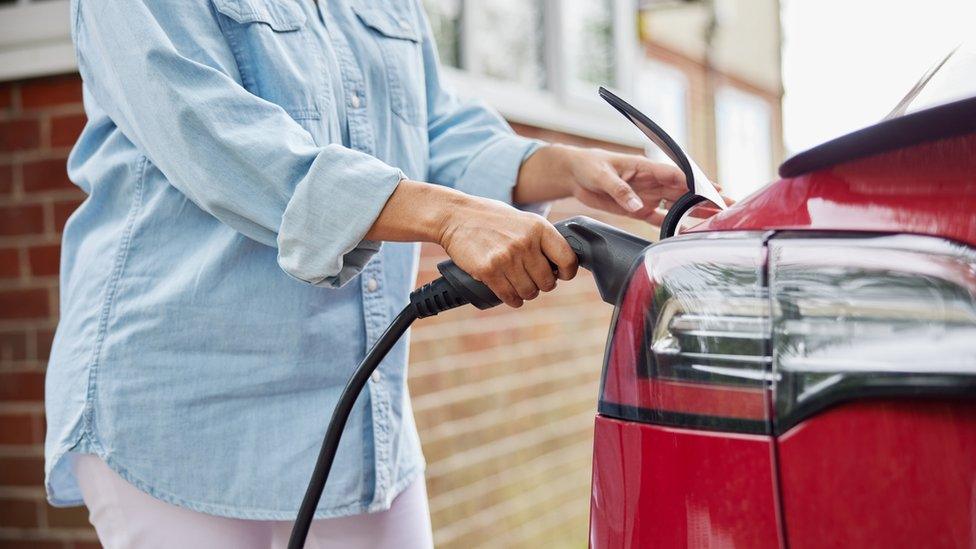Warning over eco-friendly Reading homes hampered by electricity cap
- Published

Reading Borough Council is investing in the electrification of heat and transport to help reduce its carbon footprint
Plans for eco-friendly new homes could be hampered by restrictions on the electricity supply, a council has warned.
Reading Borough Council said Scottish and Southern Electricity's (SSE) had set a cap on some new connections.
It said it prevented heat pumps and electric vehicle charging points being installed on some housing developments.
SSE said it was making "every effort" to fulfil requests to connect to the network.
The council said the increasing number of restrictions could hamper its plan to become a "net-zero carbon town" by 2030.
It said it meant future developments of between 50 and 100 homes that use heat pumps or electric vehicle charging points are unable to secure the electricity network capacity needed to meet the council's C Local Plan requirements, external.
Other projects in Reading which may fall foul of the new restrictions include a proposed solar farm and the installation of more than 5,000 new charging points as part of the council's new Electric Vehicle Charging Infrastructure Strategy.
'Future demand'
Micky Leng, lead councillor for planning, said he was concerned SSEN's cap could "derail the progress" the borough has made so far in tackling climate change.
"With new sustainable homes a part of the Local Plan, alongside the council's plans for more solar installations and investment in EV infrastructure, Reading is well-placed to build on that progress.
"Without serious investment in the local network and changes in how it is allocated however, we must question how much of it will be achievable," he added.
Reading Borough Council said it would work with SSEN to prevent local authorities and developers becoming "effectively paralysed" when planning low-carbon initiatives.
SSEN said: "We would like to reassure communities and developers that over 95% of requests to connect to our network are able to proceed without restriction and every effort is being made to remove or mitigate restrictions where they exist.
"We will continue to work closely with the council and those seeking connections to the network to update on progress alongside collaboration to build a stronger understanding of future demand forecasts to inform our planning models."

Follow BBC South on Facebook, external, Twitter, external, or Instagram, external. Send your story ideas to south.newsonline@bbc.co.uk, external.